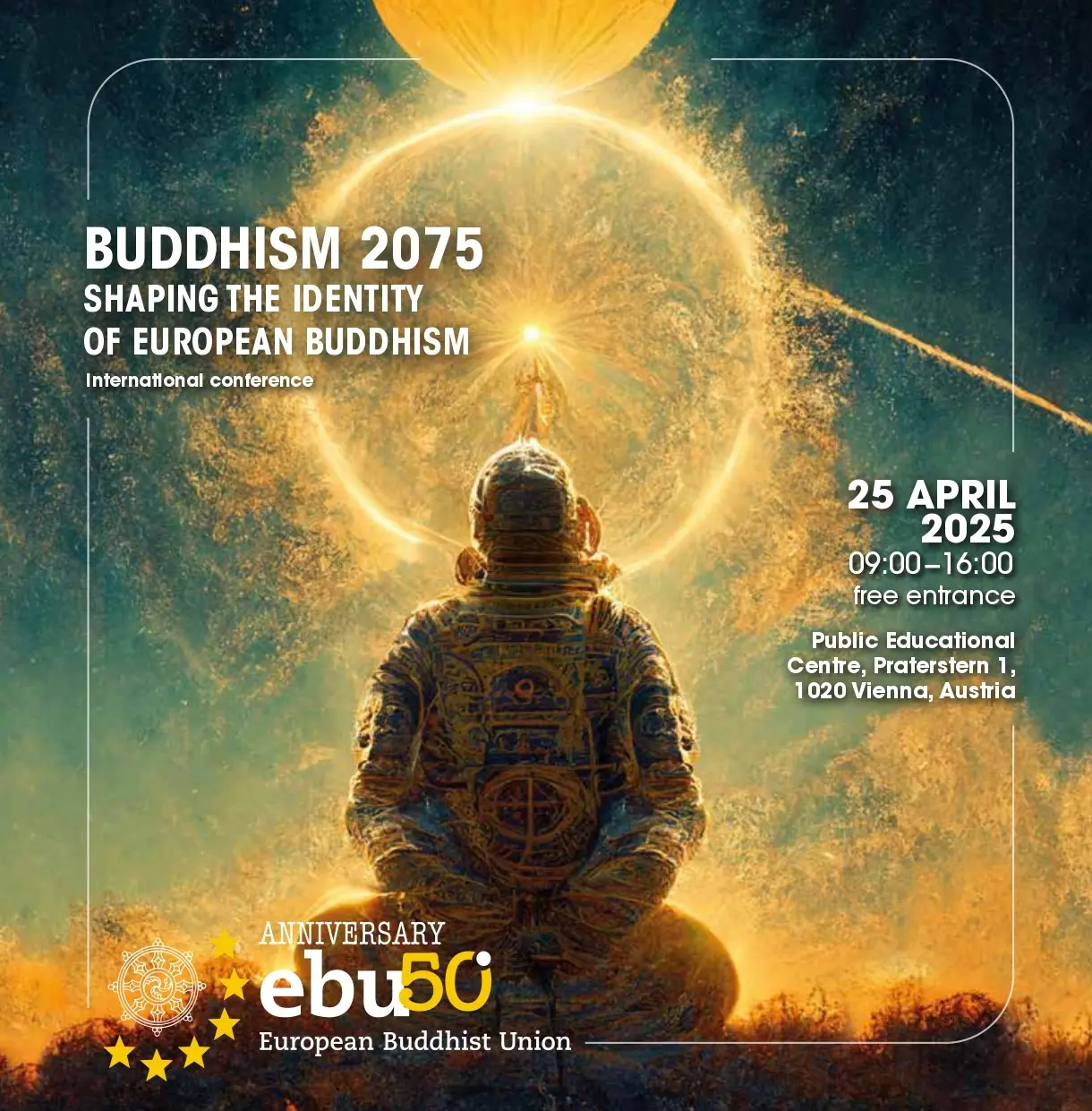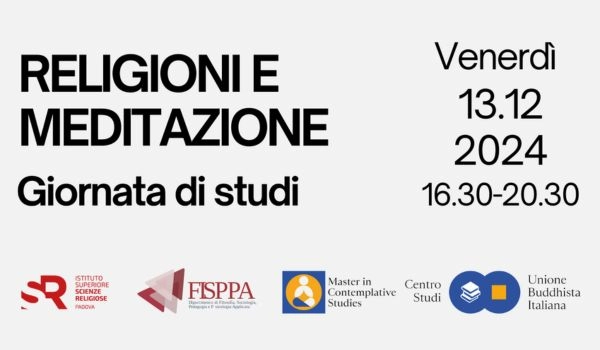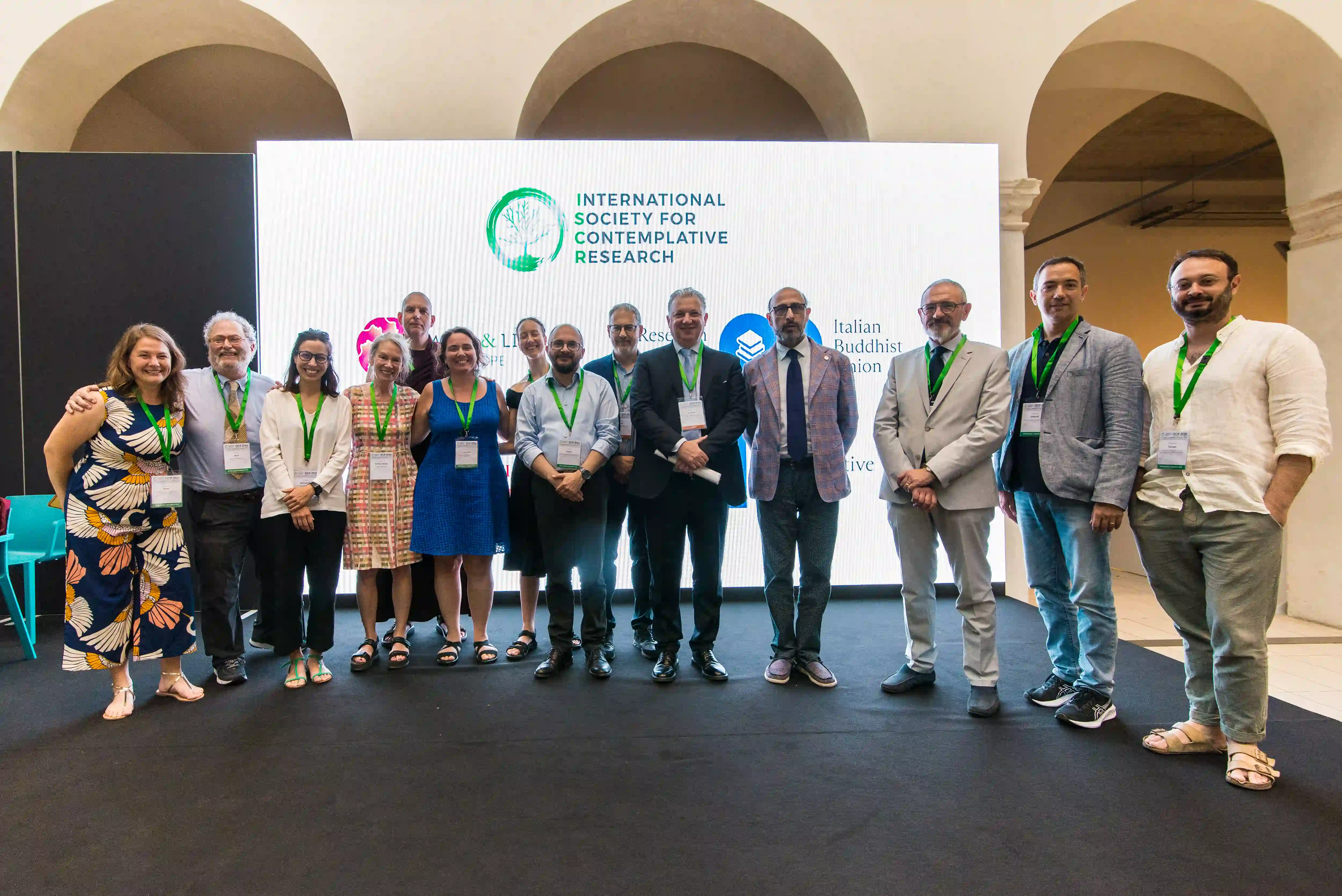International Conference for the 50th Anniversary of the European Buddhist Union.
On 25 April 2025, the international conference Buddhism 2075: Shaping the Identity of European Buddhism was held at the Public Educational Centre in Vienna, organized to mark the 50th anniversary of the European Buddhist Union (EBU). The event was promoted by the EBU, the Study Center of the Italian Buddhist Union (UBI), and the Austrian Buddhist Union, with academic and financial support provided by the UBI Study Center.
The conference offered a significant opportunity to reflect on the future of Buddhism in Europe, in light of ongoing social, technological, environmental, and cultural transformations. Using a participatory and dialogical format, the event brought together international scholars, practitioners, young people, and representatives from European Buddhist institutions.
International Speakers
The event featured five prominent speakers from diverse traditions and cultural backgrounds:
Stephen Batchelor (United Kingdom) – Author and lay Buddhist teacher, known for his secular approach to the Dharma.
Bhikkhunī Dhammadinnā (Italy) – Director of the Āgama Research Group, scholar of early Buddhist texts and monastic law.
Peter D. Hershock (USA) – Philosopher and Director of the East-West Center in Honolulu, expert on Buddhist approaches to technology and consciousness.
Gábor Karsai (Hungary) – Rector of the Dharma Gate Buddhist College and Executive Director of Mind & Life Europe.
Ioana Spataru (Austria) – Trainer, activist, and coordinator of the Austrian Buddhist Youth.
Themes and Reflections from the Conference
European Buddhism and Modernity
The opening session addressed the relationship between Buddhism, science, and secularism. While acknowledging that European Buddhism is still young, participants highlighted its gradual evolution toward a distinctive identity.
There was a rejection of the idea that Buddhism must be “purged” of elements such as karma and rebirth, which were recognized as still meaningful and profound. Buddhism was described as a potential “third way” between science and philosophy, capable of offering unique insights into consciousness and subjective experience.
Engaged Buddhism: Ethics and Social Transformation
The second session focused on ethics in action. Engaged Buddhism was recognized as fully consistent with tradition—not a recent addition.
Challenges such as ideological activism and accessibility were addressed, with a strong emphasis on including underrepresented groups and minorities.
Young voices were represented by the Austrian Buddhist Youth, which emphasized the urgent need to connect spirituality with climate justice, peace, and intercultural dialogue.
Toward a European Sangha?
The third session explored a crucial question: is it possible to build a European Sangha?
In a context marked by individualism, the importance of the communal dimension of practice was reaffirmed.
Participants spoke of the need to create support networks among monks, nuns, and lay practitioners, and to foster dialogue between Asian-origin Buddhist communities and convert practitioners.
Despite the diversity of traditions, the possibility emerged of building a community based on a shared ethos—one that values plurality without sacrificing spiritual coherence.
Future Perspectives
The conference closed with the hope that this gathering might serve as a model for future events, promoting dialogue among traditions and strengthening cooperation at the European level.
The importance of maintaining strong ties with Asian Buddhist communities was reaffirmed, as was the goal of building a European identity grounded not in isolation, but in authentic dialogue.






